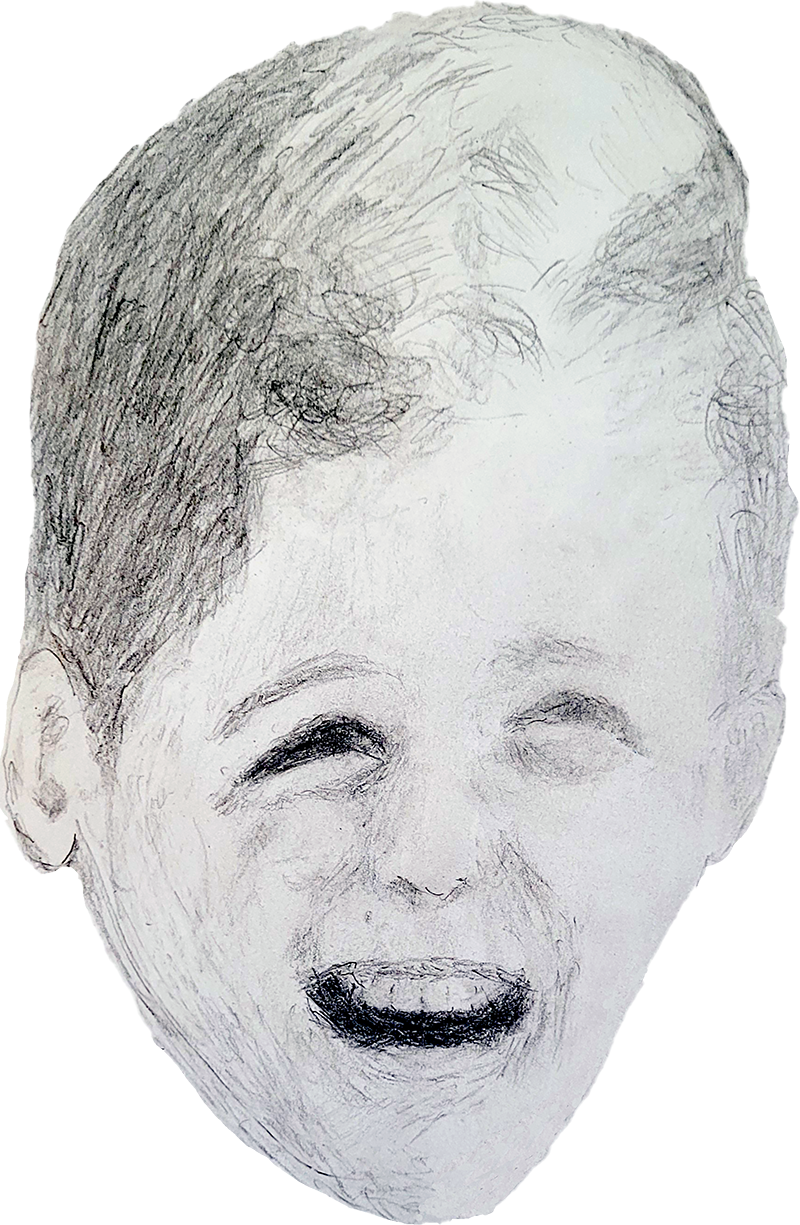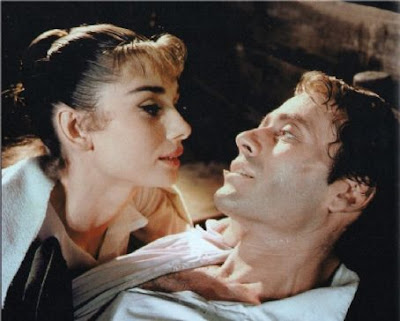 |
| Pitch from Baseball's Only World Series Perfect Game, Don Larsen, 1956 |
This is my pitch for MOURNING DOVE, the novel I, Shawn Oueinsteen, wrote to help put mankind's climate-disaster mitigation on a war footing.
Logline for MOURNING DOVE
A post-apocalypse family of climate scientists, engineers, dreamers, and sharpshooters travels from their climate-extinction-prevention station in Alaska to Antarctica to join distant family rebuilding civilization; in their journey, they see how tragic and heart-rending a climate apocalypse can be
Elevator Speech for MOURNING DOVE (aka Jacket-Flap Summary)
“Dammit Jen! You didn’t have to die to get me to grow up.” These are the words of the main character, Ttuuee, and they are false. Witnessing his sister’s murder triggers his coming of age with the character of a diamond, hard and brilliant, with sparkling but sharp-edged humor. Leading the family, his experiences include drawing into his arms the painted body of his adopted witch, as she sobs with regret she was born truly evil. Sleeping at the bedside of his deathly ill father, he awakens with joy hearing Dad’s obviously phony delirium, a joke; Dad is no longer a breath away from dying. Ttuuee smiles into the ocean breeze as he watches the pirates who attacked flee in their damaged ship. He forces an evil queen (a cousin) to remove handcuffs from his father’s wrists. He savors a hug of thanks from his Rembrandt girl for his suggesting and then digging a grave to bury the old, old dog she grew up with and loved. A few years later, he places a billion-dollar engagement ring onto her finger.
Two-Page Synopsis
The mission of Jen Darlton’s family for generations has been and still is to prevent further extinction of all life and when that’s done travel from their climate station in Alaska to Antarctica to join family restoring civilization from the climate apocalypse. Jen’s Mom, a climate scientist, believes they can do no more concerning extinction and she starts leading the effort to go to Antarctica. But Mom dies due to a surprise ice storm caused by climate change. As Mom’s body is lowered into her grave, Jen, promises to her mother’s soul that she will fulfill Mom’s dream.
Jen’s Dad refuses to go. Grandpa tells Dad how a pair of mourning doves made a nest in the carport of his childhood home. When the mother bird was killed by a neighbor’s cat, the father bird stood a foot away from the nest and shouted, for 18 hours straight, the call of the Mourning Dove: koo kurikoo koo koo. He flew away and the eggs eventually rotted. Grandpa tells Dad not to let his own children rot away without ever seeing others their own age. To Dad, Jen cries, “Koo kurikoo koo koo.” That changes his mind.
At the fall of the U.S., Grams was a colonel and her father was chairman of the Joint Chiefs. As a result, their Alaska station is well provided for and includes a military cargo plane. An airplane malfunction forces them to touch down in a small joint Naval/Air Force base town in southeastern Brazil. They inspect the town, which appears deserted. Jen wants to give Ttuuee a birthday present and sees something he would like. She arises early the next morning and runs off to get the present before the others wake up. Ttuuee gets up and realizes she is gone. He awakens Dad and they start off after her. But as they leave the safety of their plane, they find they are under attack. They learn later these are from a family of “post-apocalypse have-nots,” who wish to murder them for their supplies and capture Jen. In the post-apocalypse world, healthy young women are a valuable commodity. Dad is a trained sharpshooter and he, Ttuuee, and Jen all carry U.S. Army-supplied munitions that are well maintained. Dad kills the attackers and they race to the town center. There they see Jen fighting to escape from a young man about her age. Her assailant reaches for a pistol near him, Jen grabs his arm and bites it. In desperation, he grabs a knife from his belt with his other hand and stabs Jen her through the heart. He is shot by Dad, a moment too late.
Shortly after Dad and Ttuuee finish burying Jen, Dad hands Ttuuee a pistol and begs Ttuuee to shoot him, and then shoot himself. Ttuuee slams his fist into Dad’s chest. He shouts, “No! Jen had a mission she died for. We will achieve her mission or die trying.”
Dad and Ttuuee carry heavy bags of water back to the plane on a very hot day, Dad feels sick and collapses, unconscious. Ttuuee cannot wake him. But he feels a hand on his shoulder. Its from a young woman who wears only impressionist camouflage paint. She wipes Dad’s face and chest with a wet cloth. She drips water onto Dad’s lips. He wakes up coughing. She and Ttuuee half walk, half carry Dad to her home, which she shares with an old, fat, dark-skinned artist named Manny. Her name is Gerta, and she gives Dad her bed.
Ttuuee and Gerta both care for Dad and he slowly recovers. Manny suggests they continue to Antarctica using a Brazilian military spy ship his mother worked on just prior to the climate apocalypse. The ship’s name is the Bucephalus. As they set sail, they fight off an evil king (Manny’s cousin). Manny has coughing fits in which he spits up blood. During one fit, he intentionally falls overboard to die at sea. Near the South Orkney Islands, they are attacked by pirates, who attempt to seize the Bucephalus. Ttuuee and Dad use the ship’s sophisticated weaponry to defeat the pirates.
Grandpa’s cousin, Catherine, built the Darlton colony with great family wealth she and her cousins inherited. Grandpa and Catherine are on different sides of family hatreds ongoing for more than a century but they get along. However, Grams hates Catherine and says she created the colony not to rebuild civilization but to make herself queen. Shortly after docking, Ttuuee notices a girl in strong sunlight and dark shadows. With the lighting and her mischievous smile, she reminds him of Rembrandt self-portraits. He thinks of her as the “Rembrandt Girl.” As Ttuuee begins school, he befriends her. Her real name is Snana, which comes from her Lakota heritage.
Grams proves to be right about Catherine. She has Dad arrested. She attempts to have Ttuuee seized but he manages to flee from his captors and run to the Bucephalus. He instructs it to immediately run a program he wrote to use the Bucephalus weaponry to save the colony from a threatening glacier. When the noise dies down, he has the Bucephalus amplify his voice. He announces that his ship just saved the colony but never again will it assist the colony unless they immediately release his father. He knows his demonstration scared everyone who saw it. Catherine has Dad released.
Snana’s very old, beloved dog dies. Ttuuee volunteers to dig a grave under a tree and help her conduct a proper funeral. She is grateful. She mentions that Catherine brought mourning doves to the colony. A few days later, they spend a day together in the woods and enjoy each other’s company as they see and hear the doves. On another day, she plays for him parts of a Lakota symphony she is composing. As he walks back to his ship, he stops to rest at a comfortable grassy patch. He thinks of how much he is attracted to Snana, and how nothing speaks to the rebuilding of humanity as much as a new symphony that incorporates tribal melodies. He leans back and shouts to the sky, “Thank you, Jen, wherever you are.”
He hears a very distant response. He is sure it is Jen’s voice. It says, “Koo kurikoo koo koo.”
A few years later (epilogue), Ttuuee places a magnificent Darlton-family engagement ring on Snana’s finger.
Who I am: Author Autobiography of Shawn Oueinsteen
My hopes and dreams were baked in before I turned five. As editor-in-chief of a movie magazine, my Dad was kissed by Elizabeth Taylor and Marilyn Monroe but said my mother was more beautiful than either of them. When my Mom died, my father wrote a love poem to her every day for a year. Because of that, MOURNING DOVE character Max Nytlee writes love poems to his wife every day after she passes away. Romance is in my DNA. The final pages of MOURNING DOVE include a diamond ring being slipped onto a beloved's finger.
When my father was a teenager, the Philadelphia Phillies offered him a contract as a pitcher, but World War II ended his baseball dreams. As a toddler, I used to watch him pound out sentences using two fingers on an old manual typewriter. Then he would tear the paper from the machine, scrunch it into a ball, and throw it to the floor harder than he ever threw a baseball. He did that hundreds of times and never got to his novel's second page. I started writing fiction at the age of seven. I studied for an Master's Degree in creative writing under J.R. Salamanca, whose first two novels became major motion pictures. At the age of twenty-two, I wrote a short novel and had it published by a division of Random House. I type, with all ten fingers, at more than 120 words per minute.
My big sister hated me. Almost from the day I started to walk, she would get me to follow her, lead me to places I didn't know, and intentionally lose me. If I was lucky, strangers would see me crying and come to help. She lost me once when we were on vacation. I couldn't tell the strangers how to reach my parents. It was many hours before both sides called the police. My sister took great pride in being the bad kid. She enjoyed, and still enjoys, being in trouble. She would never do her homework. I can't help but be her opposite. I am the good kid. I always do my homework. As homework for my climate novel, I have read more than 200 books about climate change, many by scientists. I have connected on social media with more than 35,000 climate experts, and I communicate one-to-one with many of them. Readers of my blog have recommended me as a climate-change expert to give a speech and perform in a podcast.
An evil soldier with a bayonet stabbed and killed my cousin as a baby in the arms of my grandmother's sister, my mother's favorite aunt. This was in Auschwitz. After a climate apocalypse, migrants will become hungry, thirsty, and diseased, and will experience their loved ones dying. People will kill people, doing anything for food, water, electricity, and medicines to stay alive. I wrote MOURNING DOVE to keep babies from being stabbed to death in their mothers' arms. That is why I am so very dedicated to marketing MOURNING DOVE, as I describe in the Query Letter.
I am very confident that a top literary agent will represent me and will sell MOURNING DOVE to a great publishing company. To follow the progress of MOURNING DOVE, and see whether my confidence is justified, please friend me on Facebook, follow me on Twitter, and connect with me on LinkedIn. Thanks.





